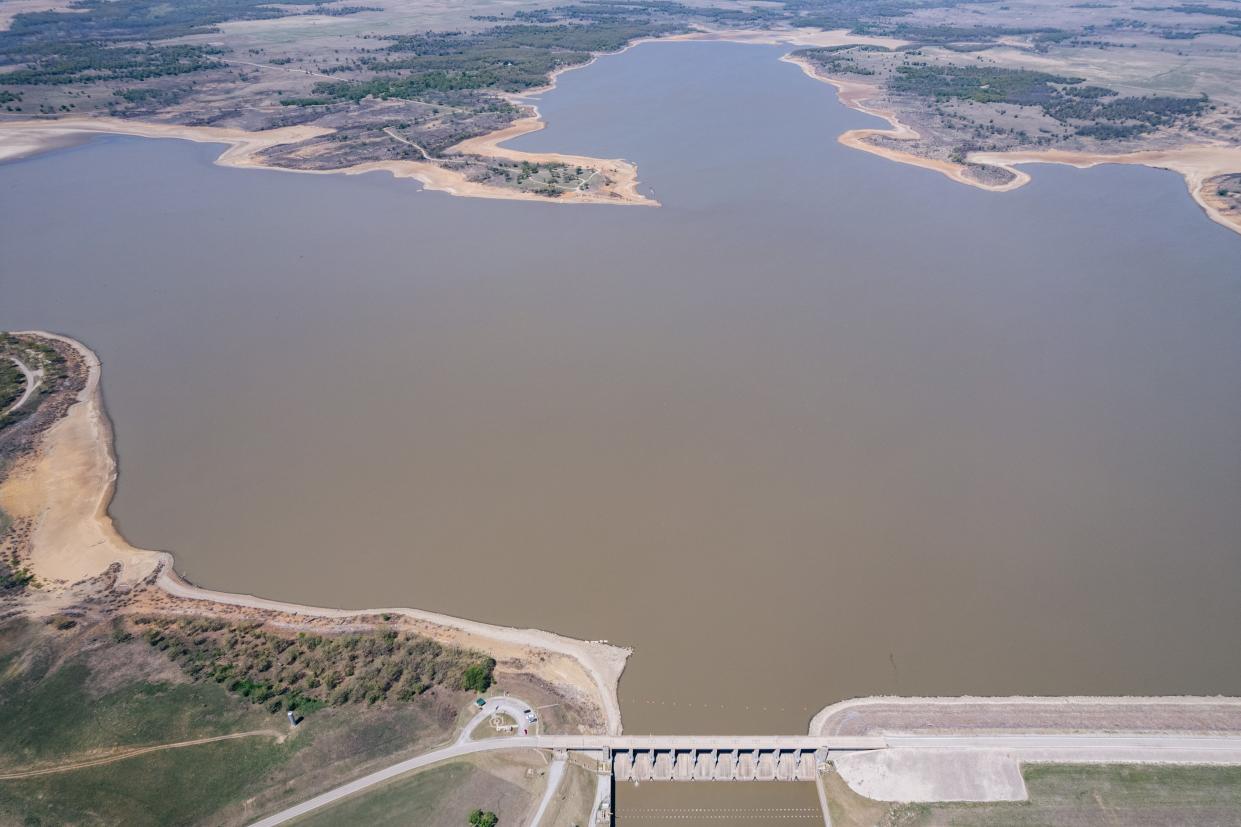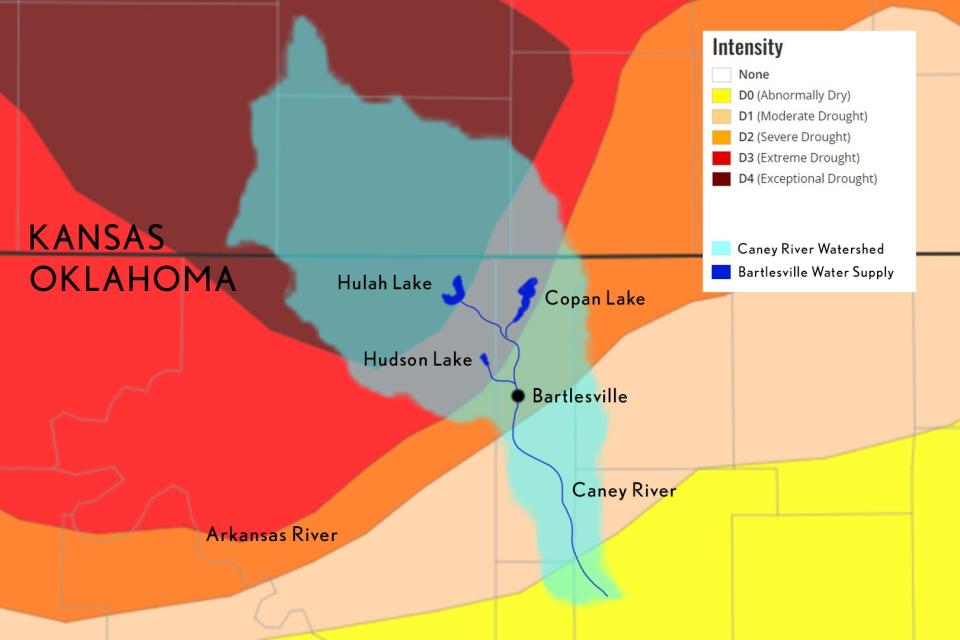Bartlesville exploring ways to supplement or replace water supply

The City of Bartlesville is currently floating possible contingency plans to supplement or replace the water supply but isn't ready to discuss them publicly.
In the recent edition of the City Beat newsletter, City Manager Mike Bailey assured residents that although the water supply has declined, Bartlesville will not run out of water.
"They are in various stages of development and not ready to be shared publicly, but I am confident in assuring our residents that Bartlesville is not going to run out of water," he said. "We will provide water to our citizens, one way or another."
Bailey emphasized that current water restrictions are part of the plan to preserve the water supply until other measures can be implemented.

The primary water sources for Bartlesville are Hulah and Copan lakes, fed mainly by rainfall in southeast Kansas. The drought conditions in this area are significantly affecting the water supply.
Most of the Caney River watershed is experiencing an exceptional drought, the highest level, that started in the summer of last year.
Some areas of the watershed are missing over 20 inches of rain since last summer, according to the National Weather Service.
The water supply level currently stands at around 58%, a decline from the 70% level that triggers the Water Shortage Ordinance.
While light rains in the region provided some relief in recent weeks, in combination with reduced outdoor water usage, significant rainfall is needed near the lakes' watersheds in Cedarvale, Kansas, and Sedan, Kansas, to replenish the water levels.
In the meantime, Bailey urged citizens to continue conserving water until alternative measures are implemented. He emphasized that everyone needs to do their part in conserving water to preserve the existing supply.
The city recommends that people take shorter showers, stop or reduce outdoor watering, turn off the water when brushing teeth, flush only human waste down the toilet, run the washing machine and dishwashers when full, and fix water leaks.
Currently, the city has responded by conserving water usage to 4.66 million gallons a day, an improvement over summer peak use that can spike to over 8 million gallons.
This article originally appeared on Bartlesville Examiner-Enterprise: City exploring ways to supplement or replace water supply

